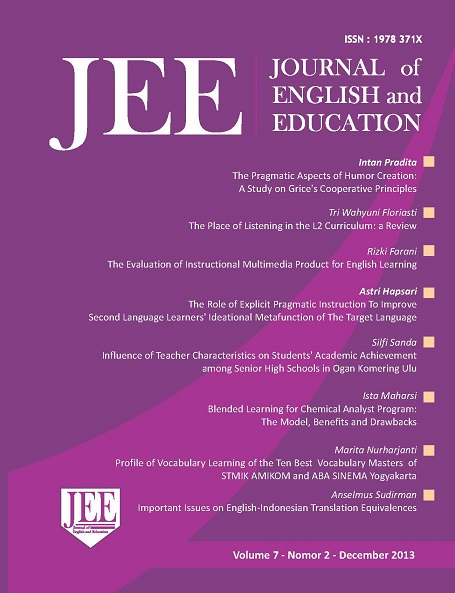Main Article Content
Abstract
Humor is special tool of communication for its multifunction in any discourses. Its flexibility has been used by many people, of all social class, to deliver criticisms, tragedy of commons and happening issues in a funny way.This is because humor and culture are inseparable. Humor importance is undoubtedly effective to reveal the codes in cultures, politics, and education. The creation is interesting to discuss in this essay because it demands creativity, and its acceptance asks for high cognitive ability. However, a wrong perception of humor which is caused by different cultural background, and lackness of language competence is the core problem that may create missunderstanding. Through linguistics point of view, conversational principles constructed by Paul Grice is chosen as the approach of humor analysis.
Keywords: pragmatics, cooperative principles, flouted maximsArticle Details
Copyright (c) 2016 JEE, Journal of English and Education

This work is licensed under a Creative Commons Attribution-ShareAlike 4.0 International License.
Authors who publish with this journal agree to the following terms:
- Authors retain copyright and grant the journal right of first publication with the work simultaneously licensed under a Creative Commons Attribution-ShareAlike 4.0 International License that allows others to share the work with an acknowledgment of the work's authorship and initial publication in this journal.
- Authors are able to enter into separate, additional contractual arrangements for the non-exclusive distribution of the journal's published version of the work (e.g., post it to an institutional repository or publish it in a book), with an acknowledgment of its initial publication in this journal.
- Authors are permitted and encouraged to post their work online (e.g., in institutional repositories or on their website) prior to and during the submission process, as it can lead to productive exchanges, as well as earlier and greater citation of published work (See The Effect of Open Access).

